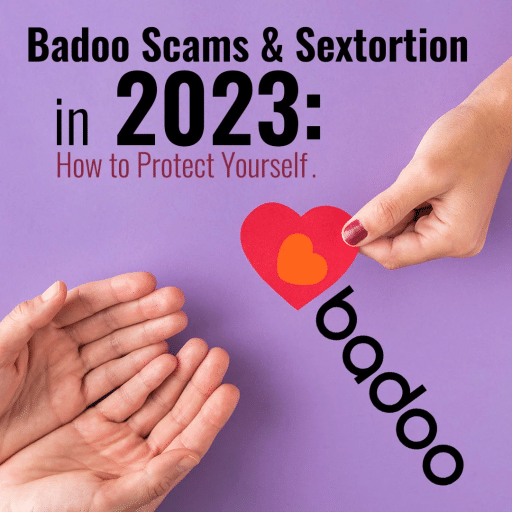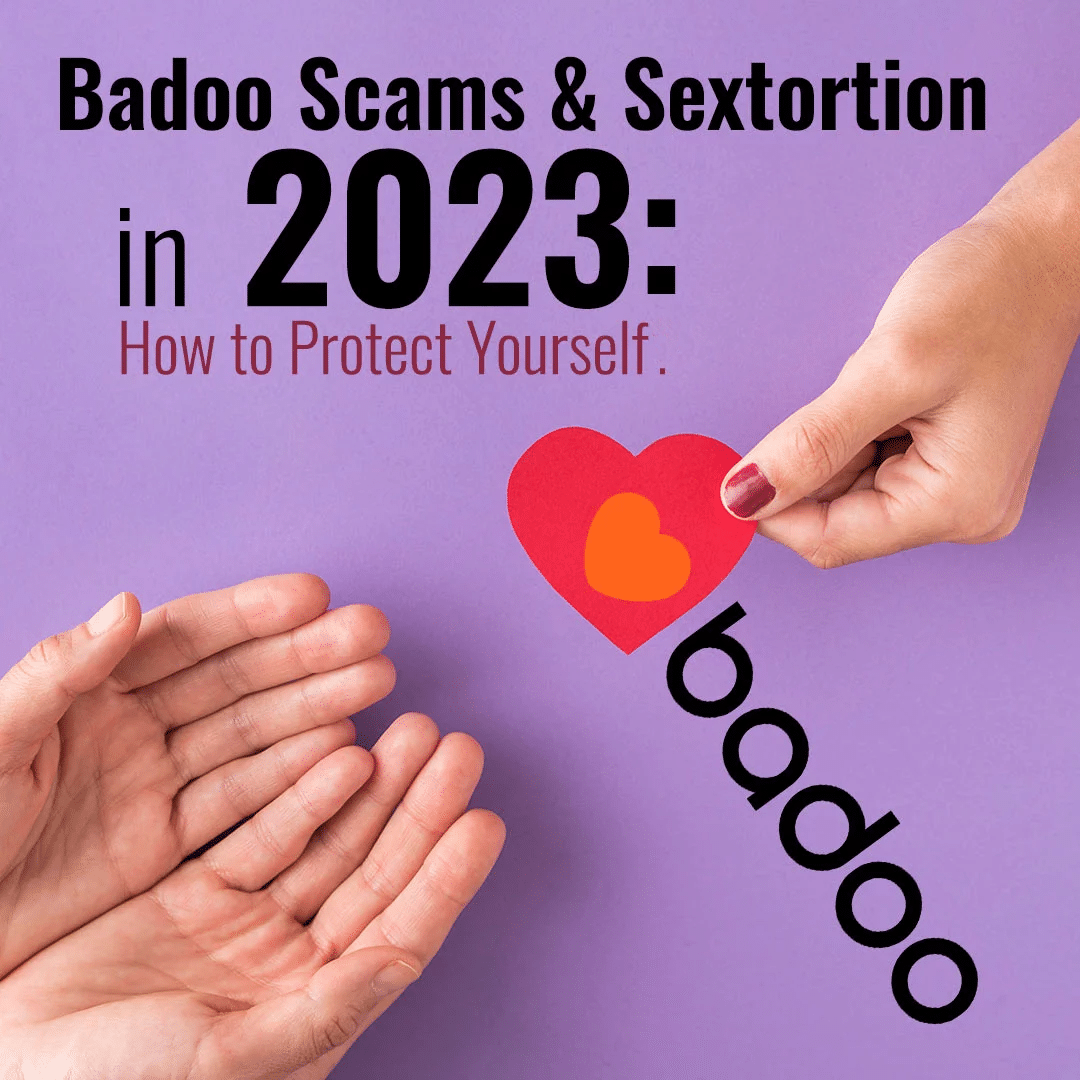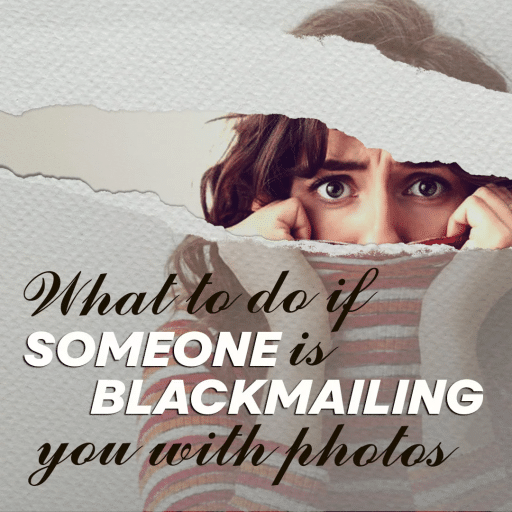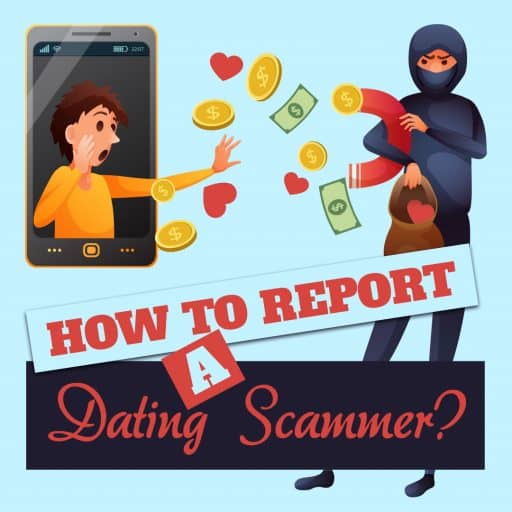For almost twenty years, singles have flocked to the Badoo app to make connections. A reputable social network and dating site, Badoo attracted a large user base due to its users enjoying the seamless experience the app offered. But for some users, their dreams of finding a special someone devolved into a nightmare when they found out that some of their romantic connections had more nefarious intentions.
Like many other dating/social applications, Badoo has become infected with scammers. Cybercriminals that prey on innocent users by entrapping them with fake profiles and fake flirtations. For those who have fallen victims to different sextortion and extortion scams on this application, there is still hope, both to break free from their blackmailers and protect themselves from future abuse.
The Two Most Common Cyber Scams on Badoo.
Based on the number of reports of digital blackmail and other types of extortion received by Digital Forensics Corp. from 2020-2022(1) involving the Badoo Application, 98% of the cases fell into one of two types of cyber extortion. Of these 85% of the reported crimes were sextortion involving nudes, while 15% involved romance scams with the users being extorted for large sums of money in the form of gifts.
Another important finding from this research was that some of the cases of sextortion began as romance scams and devolved into cases of sextortion when the victim first refused to send money.
Is It Easy to Spot A Badoo Sextortion Scam?
If you are actively engaging on any dating application including Badoo, there is some likely hood that you might be asked to deliver or receive some form of intimate image. While the idea of sexting can be enticing, this activity becomes much more dangerous if you’ve never met the person which you are sharing these images with. In a 2023 study by the American Survey Center about one in five Americans including equal number of men (18%) and women (20%) had sent some type of intimate content to someone they had connected with on a dating app (2) . This illustrates that sending explicit content to perceived partners is prevalent in modern dating culture.
This is what makes sextortion such an attractive enterprise for cybercriminals. They are able to easily make a fake profile which could catch the attention of multiple victims that can then be lured into sharing content that will later be used to extort them later.
Spotting these scams is not easy but there are techniques to potentially identify a fake profile. Below are a few of the ways that you can remain diligent and spot potential scammer profiles.
Three Techniques for Spotting Fake Profiles
While these three steps may help you identify and report scammers to the Badoo administrators, they are not fool-proof.
- Look out for overly attractive profile with little information. If a profile doesn’t provide a large amount of detail and only includes overly attractive almost stock photos, it may be an indication of a scammer profile. Using reverse image search techniques can help you determine whether or not the person you are messaging is really who you are talking to.
- Look out for messaging that goes a bit fast. While we aren’t saying that love at first text doesn’t exist, it may not be the best idea to go from accepting the request to immediately exchanging intimate content. If the messages you receive pressure you into sending any information that can be used to extort you, it may be time to block.
- Lastly use your best judgment. If something doesn’t feel right or a profiles sound too good to be true, you shouldn’t move forward.
Dating Scams on Badoo.
Unlike sextortion scams, romance scams can be much more complex. The intention of these scams is to create the illusion of a loving relationship so that when a request for money comes up, it isn’t met with hesitation. Romance scammers take their time to build trust with flirtations and statements of love that seem genuine.
The way to spot a romance scam requires the victim to be honest with themselves and ask if this is something legitimate. Spotting these scams is difficult, and these cybercriminals can create very convincing stories.
Does Badoo Offer Any Protections For Its Users?
At this time, Badoo cautions their users against sharing content or engaging in relationships that involve sending payments to their connections, but they do not have any additional security measures. You can share intimate images on the application and any user can create a profile with unverified images(3).
Strategies to Prevent Cyber Threats
As with most social or dating applications, the security of your online presence rest solely on you. As a result we suggest taking the following steps when you engage in online activity.
- Data Discretion: Personal and professional data are valuable assets, they should not be casually dispensed. Resist the temptation to divulge sensitive information to unknown individuals. Treat your personal details, financial status, and social connections with care, recognizing that they may be difficult to erase once shared.
- Mind Your Digital Footprint: Just as you might research a potential romantic partner, scammers have the ability to research their targets. Avoid disclosing information that can be used against you including employment information, personal addresses, or family connections as best as possible. And above all, be cautious on who you allow to see your social posts and profiles.
- Cultivate A Healthy Skepticism: Do not click on links, download unfamiliar files or engage with unsolicited communications. Remember, not every online interaction is what it seems.
- Report Suspicious Activity: Platforms like Badoo rely on their users to report profiles that may or may not be scammers. If you suspect something document the information and submit that info to the platform’s administrators.
What If A Scammer Has Already Gotten to You.
If you’ve discovered that information or content you shared on a platform like Badoo is now being used to threaten you, it is important that you act both quickly and calmly. Do not give into demands or agree to any payments, instead contact the following organizations for assistance.
- Local Law Enforcement: While your local law enforcement may advise you that they can not help, it is possible that they will direct you to federal organizations such as the FBI’s Internet Crime Complaint Center (IC3) for additional guidance and assistance.
- A Cyber Security Firm: Cyber security firms like Digital Forensic Corp. combat sextortion and other types of blackmail by removing a cybercriminals most powerful tool. Their anonymity. Once you work with a company that performs different IP to location and Hardware Fingerprinting techniques you’ll be able to identify your blackmailer regardless of where they are. Using this information, companies like DFC can work on your behalf to ensure your blackmailer’s leverage is removed and your content deleted.
- Badoo Administrators: App administrators will work to suspend your blackmailers account helping prevent additional exposure and threats, but it is not a permanent solution for the problem.
If you have additional questions on how to proceed as a victim of sextortion or other form of cyber blackmail, we have representatives standing by who can assist you via our Blackmail Helpline. Feel free to use the chat bot or call 888.521.1551
SOURCES:
- The information presented in this article is based on sources that are not readily available to the public and may be subject to restrictions or confidentiality. It is intended for informational purposes only.
- The American Survey Center finding on explicit content sharing – https://www.americansurveycenter.org/research/from-swiping-to-sexting-the-enduring-gender-divide-in-american-dating-and-relationships/
- Badoo Policy Regarding the Sharing of Intimate Images – https://badoo.com/guidelines#guidelines






